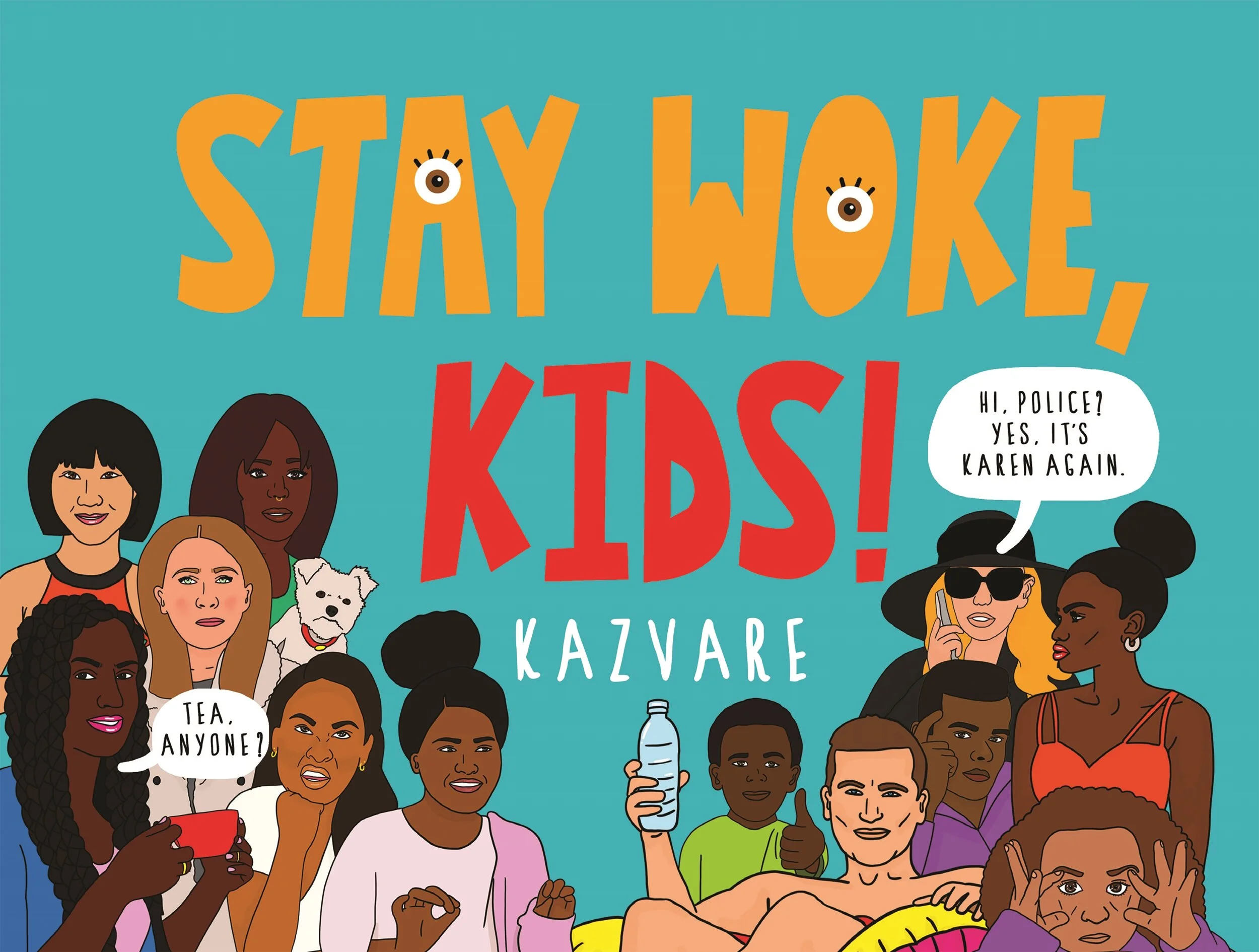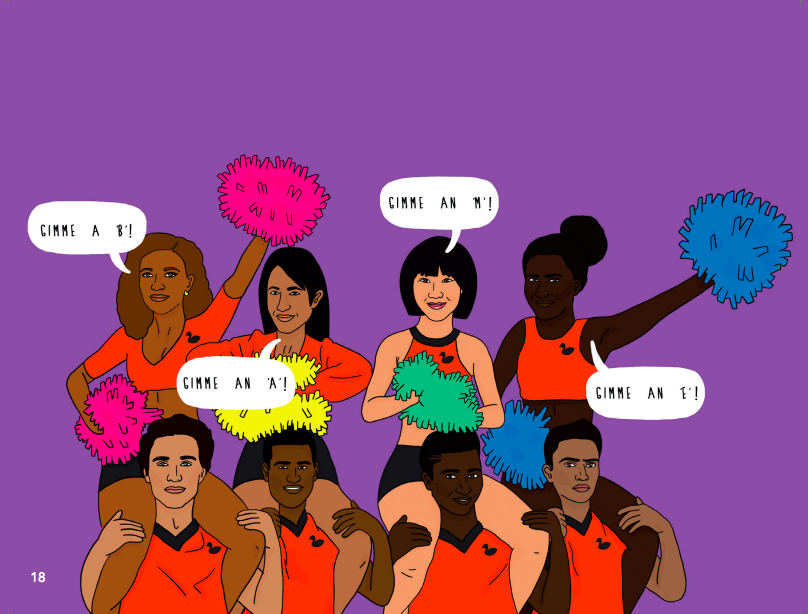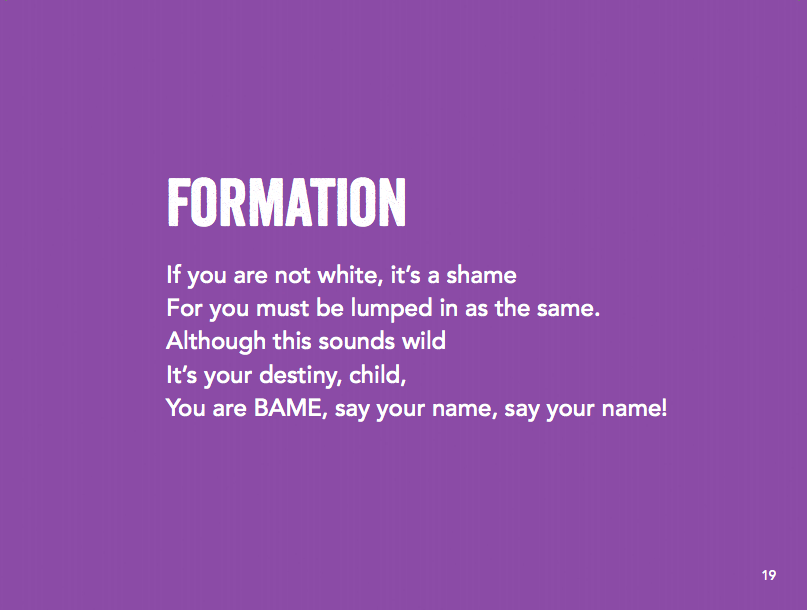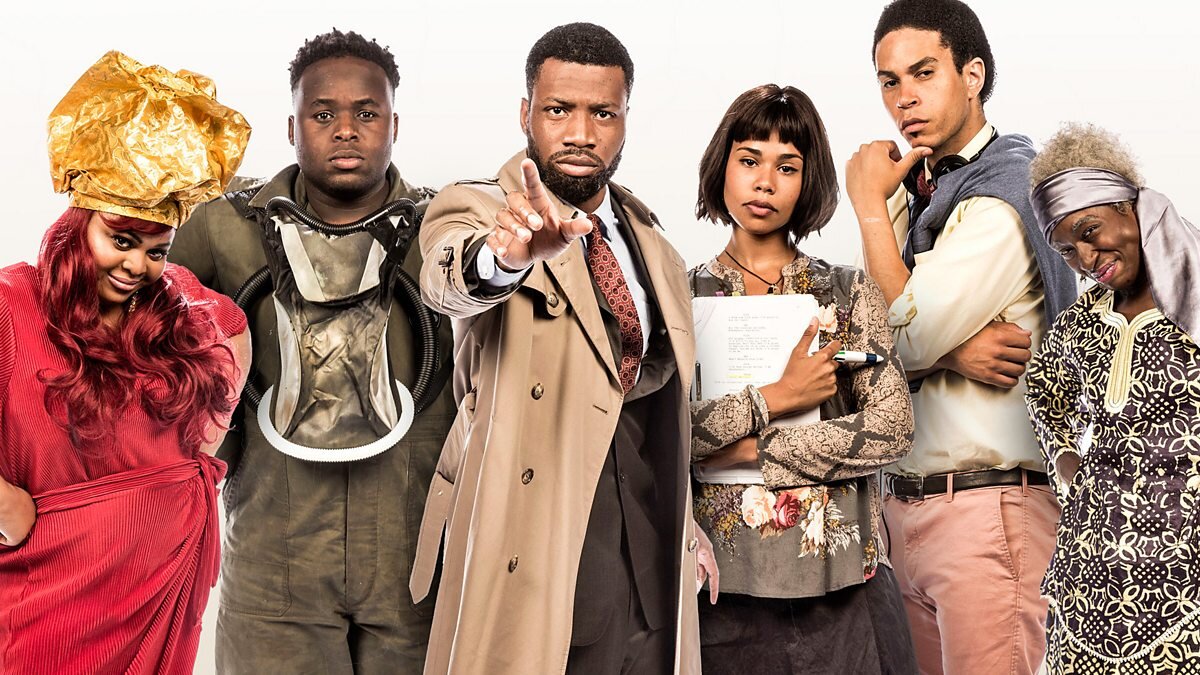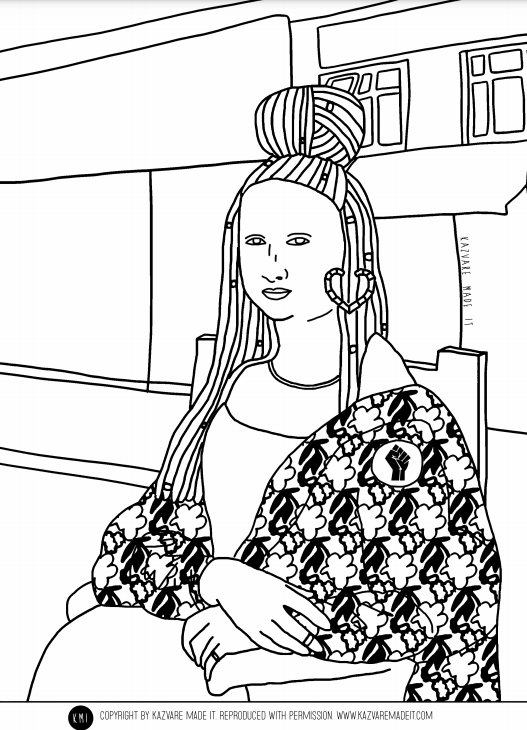“Stay woke, because despite white majority culture thinking it's a slur, we don't have to see it in the same way” - Kazvare
“There is a thin line that separates laughter and pain, comedy and tragedy, humour and hurt.”
Most people, when you ask them what is funny about something they have just laughed at, invariably give the response “it just is”. Although we traditionally think that human beings have only five senses, we talk about someone having a sense of humour or not having one. Plenty of people from Freud to Richard Pryor have waxed lyrical on what makes people laugh, what funny is and what comedy is, but humour remains something ephemeral. For anyone who is not white, cis and able-bodied, the ability to laugh - at oneself, at the world, at society - is more important than ever. In a society where the lines between tragedy and comedy have never been so achingly close and obviously farcical, making things funny can prove to be a useful tool for self-reflection, learning and change.
For illustrator and poet Kazvare, using humour to highlight the fallacies of society is an important part of her practice. The mastermind behind the brand Kazvare Made It, an illustration lab that creates striking stationery, homeware and accessories, her colourful and playful work blends pop-culture and limericks but there is some salt in the sugar, showcasing a dark sense of humour that is uniquely Black and British. I met up with Kazvare to discuss her latest offering Stay Woke, Kids!, a children’s book for adults that is a satirical take on our ‘post-racial’ society.
Author and Illustrator, Kazvare
“Satire is, by definition, offensive. It is meant to make us feel uncomfortable. It is meant to make us scratch our heads, think, do a double-take, and then think again.”
The original impetus for writing the book came in September 2019, Kazvare says it, “was an Instagram post, inspired by the rage I felt from reading a Twitter comment.” The comment in question was a typical troll response to anything that dares to examine the social disparity between how Black people and white people move through the world: “‘white privilege doesn’t exist” In annoyance and frustration at the pernicious ignorance of people on the internet, she created an illustration and limerick, of a mother reading to her child, “my caption for the illustration was that I want to create a kid's book that spoke about these kinds of concepts, white privilege, racism, toxic masculinity etc from a young age.”
During the process of creating the work, Kazvare feels that her concept has definitely evolved, “I think it presents as a kid's book, but it's probably more so for adults”. Certainly, you would be mistaken if you saw the bright colours and limericks and took Stay Woke, Kids! purely at face value as a children’s book. However, the fact that it looks like a children’s book adds an extra layer to the satire, and the interplay between the limericks and the illustrations is crucial to the punchline of the joke. Children are often brutally honest about the fallacies they see in society and it can be hard for adults who have entrenched biases to explain exactly why we abide by these illogical social mores in the first place. With all the discussion over the last 18 months about how white people, in particular, can talk to their children about race, Kazvare’s work highlights that it might just be the parents who need the simplification, not the kids.
As you might expect from someone who builds multiple layers of meaning into her work, when I ask Kazvare about her creative process, she explains that she draws inspiration from multiple places - music, conversations with friends, books she is reading, sometimes even social media posts. “I love Black pop culture, so I wanted to sprinkle it in meaningfully”, she says. What better way to do that, than with a nod to the music of the arguable King and Queen of Black music, Beyoncé and Jay-Z, with all of the limerick titles named after Beyoncé songs, and all the chapter sections named after Jay-Z songs.
She notes that while developing the book, she wrote the limericks first and then thought about the illustrations, “Because for me, there's nothing worse than having to redo illustrations because the text is not working.” After the illustrations were mapped out, she began to layer each page with references to pop culture and a corresponding nursery rhyme, juxtaposing them against scenarios that paint a tongue-in-cheek, laughter through tears, portrait of the experiences of Black people living in a white supremacist society. A specific example she gives is of the limerick “Mine” where she draws a parallel between the normalised colonial rhetoric of Kim Kardashian and Christopher Columbus as ‘pioneers, explorers, discoverers!’ and the tale of Jack and the Beanstalk. The story we tell children is that Jack is a hero, “but actually, he's a thief! He's just gone to take something that doesn't belong to him. The justification, especially when you read it, is that the giant is an ogre. He's horrible. He's a savage. It's that same kind of language and rhetoric that was used in the colonial project. These people are savages therefore, it's only right that we should go and take what's not ours.” In building on these elements, Kazvare has ensured that the message is there to be seen for those who are looking.
“Comedy is simply a funny way of being serious.”
The concept of the gaze, who is seen and how, is central here, “My intent with much of the work that I make now is gazing back and subverting the Imperial gaze. Often, things like the news are presented, you know, from the West looking at and treating Black people in a certain way. Also the idea of us seeing and perceiving as well. Like, we perceive how whiteness moves, and operates, and it's not an objective stance.” During our conversation, I mention to Kazvare that with each reading and re-reading of Stay Woke, Kids! I have noticed something new, some ‘easter egg’ that I hadn’t picked up on before. Usually it’s one that makes me laugh the laugh of someone with whom I share an inside joke. This, she says, is the point, “That brings me a lot of joy, because, that's the heart of what I want to do is for Black people to feel seen. Especially in these days and times.”
The topics covered in Stay Woke, Kids! are hardly light and fluffy, yet despite - or maybe because of- that, the book is cathartically funny. Kazvare describes humour as being a “vital component” of her work, a way of making sense of or dealing with the things that make her angry. She quotes James Baldwin during our conversation, “...to be a negro in this country, and to be relatively conscious, is to be in a state of rage almost all of the time.” Illustration and writing have given her somewhere to put that rage, but she feels that, “there's something quite disarming about humour that means you can get your point across.”
“Satire makes people learn something more than being lectured.”
In the tradition of classic British comedy shows like Desmond’s and The Real McCoy, and more recent shows like Famalam and Chewing Gum, Kazvare’s work feels like a sketch show or sit-com in print, that feels Black and British. I ask Kazvare if she feels that there is a sense of humour that is unique to us, “I'd like to think so. I think often when you compare, for example, UK and US humour, they often say that British humour is a little bit more dry. There's more of a dry wit. On the one side, this is the way that I think about it. I think that Black people can find humour in anything and everything, like even if it's like the most dire situation, humour will be found in that.” It’s certainly been observed by Black comedic scholars like Mel Watkins that Black humour (not to be confused with black/dark comedy) often satirizes anti-Blackness, celebrates the distinctive beauty of Black community life, or focuses on outwitting the oppressor - sometimes even all three.
As we come to the end of our time together, I become curious about just who the “kids” that need to stay “woke” are and what it was like for Kazvare to make a subversive children’s book in an age of swirling opinions and plentiful internet think pieces. Her response is telling, addressing the pseudo-wokeness and performative virtue-signalling of non-Black people after the 2020 Black Lives Matter protests and the problem that many white people seem to have now with the word ‘woke’, “it irks me that, the word woke has been co-opted and turned into a negative attribute or slur. Quoting the book, Stay Woke, Kids! is kind of like a call to action. For those who are woke, to stay woke, because despite white majority culture thinking it's a slur, we don't have to see it in the same way. Also, I think it says more about their belief system in many ways. And even more so, it points to the dire need to be alert to the pernicious ways in which, white supremacy rears its ugly head.”
Using humour to alchemize pain and challenge preconceptions at the same time is no small feat, and shows just how resilient Black folks are in the face of consistent threats to our personhood and freedoms. With Stay Woke, Kids! Kazvare has written “a love letter to my people” that highlights how important satire can be when used as a tool to amplify the voices of the unheard.
Stay Woke, Kids! Available to pre-order from all major book stockists including Roundtable Books.
Whilst you wait for your book to be delivered download an exclusive colouring sheet by Kazvare.
>> Download Colouring Sheet <<
Don’t forget to tag @blackblossoms.online and @kazvaremadeit
Visit Kazvare website here .

